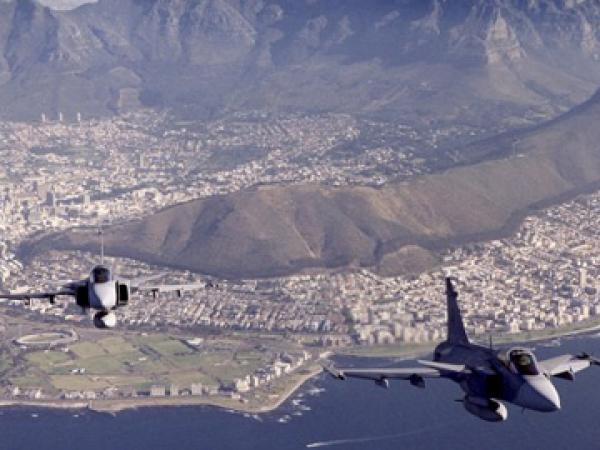Can the Seriti Commission into Arms Deal succeed?

The Commission of Inquiry into the 1999 arms deal has been underway for two years. Is it meeting its responsibility to uncover the truth?
In 2011, retired banker and activist Terry Crawford-Browne petitioned the Constitutional Court to establish a commission of inquiry into the 1999 arms deal. When President Jacob Zuma announced the establishment of the commission, chaired by Judge Willie Seriti, in 2011, many hoped that this would bring the arms deal saga closer to an end.
But over the past two years, the commission into the arms deal has been mired in controversy over the classification of key documents, the resignation of key staff members and the absence of key witnesses.
Crawford-Browne insists that the Seriti Commission is a ‘farce’.
“I am now requesting the Constitutional Court to terminate it and to instruct the President to cancel the arms deal contracts and to recover the monies”, says Crawford-Browne.
Crawford-Browne signed an affidavit to reopen the case at the Constitutional Court in March.
In his affidavit, Crawford-Browne claims that the commission has deliberately “chased red herrings”, and has also placed itself in contravention of section 237 of the Constitution, which requires that “all constitutional obligations must be performed diligently and without delay.”

Retired banker and peace activist,Terry Crawford-Browne, has been a vocal critic of the 1999 arms deal for over 15 years. Photo credit: Terry Shean.
The commission’s wide-ranging powers include the power to subpoena witnesses, the power to compel witnesses to answer questions and the power of search and seizure. Some of the issues that have led to scepticism about the commission include:
● The failure of to digitise and examine 460 boxes and 4.7 million computer pages of evidence in respect of BAE arms contracts and files relating to the German Frigate and Submarine Consortia.
● The resignation of commission staff and key figures like Judge Francis Legodi. When he resigned last year, Judge Legodi cited his unhappiness with the secrecy surrounding the workings of the commission and the covert handling of documentation. Legodi’s resignation was preceded by that of senior researcher Norman Moabi. In his resignation letter, Moabi claimed that Judge Seriti had a “second agenda”.
● The failure to declassify key documents like the 1999 Arms Deal Affordability Report. This report indicates that even if the projected economic offsets were to materialise, the financial impact of the arms deal would be far-reaching.

The shipping containers that house 4.7 million pages of unexamined evidence at the Hawks headquarters in Pretoria. Photo credit: Leon Sadiki.
Constitutional law expert Professor Pierre de Vos says that commissions of inquiry always take time. “Where powerful state institutions (like the police) and powerful private institutions (like big mining companies or arms dealers) are involved in an event or scandal, it becomes very difficult if not impossible to uncover the truth because such powerful players will often do everything they can to hide the truth.”
De Vos says that the delays and the the evidentiary rules in place have made it very difficult for lawyers to get the information necessary to cross-examine witnesses properly.
“This has led to a loss of faith in the commission and few observers now believe that the commission will come even close to uncovering the truth”, says de Vos.
But Hennie Van Vuuren, former director of the Institute for Security Studies and a vocal arms deal critic, holds a different view.
“The easy option is to call for Seriti to be scrapped. I can appreciate that activists like Terry Crawford-Browne are tired after many years of taking on this issue. I think the hard option is for us to to stay engaged for now and make sure that we hold the commission to account”, says Van Vuuren.
“All the previous attempts have largely failed due to political interference. Despite its shortcomings, the commission gives us a unique opportunity to search for the truth. This is the best opportunity we have right now to get to the bottom of this.”
GroundUp asked William Baloyi, spokesperson for the Seriti Commission, to comment on whether the commission has been effective in carrying out its responsibility.
“One of the challenges is that we have to go through millions of pages of documents. Some of the witnesses are no longer employed where they were originally employed and others are no longer residents of the country. However, that has not deterred the commission in its work or in pursuing witnesses,” says Baloyi.
According to the 2011 terms of reference, the Seriti Commission was supposed to complete its work by the end of November 2013. But the terms of reference were amended by President Zuma, giving the commission an additional year to complete its work. The Seriti Commission is set to complete its work by November 2014, after which the commission will submit its report to the president within six months.

This article is licensed under a Creative Commons Attribution-NoDerivatives 4.0 International License.


